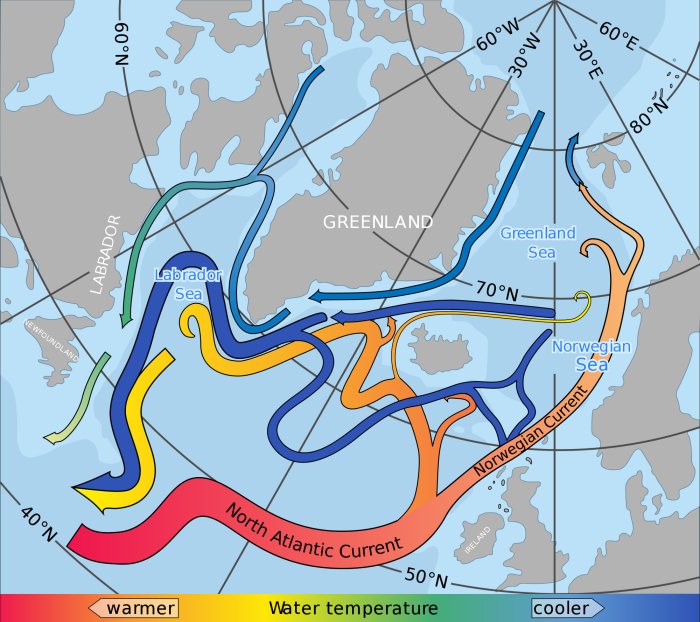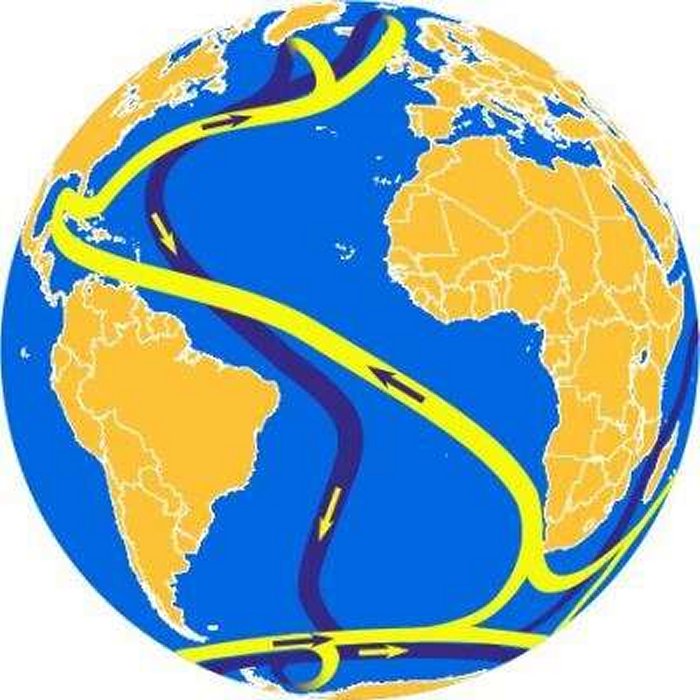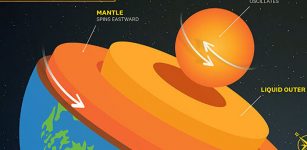North Atlantic Current May Cease Temporarily And Change Weather In Europe In The Next Century
Don Wood – MessageToEagle.com – Scientists have studied the North Atlantic Current and discovered there is a risk it may temporarily cease in the next century threatening climate chaos In Europe, warns a new study.
The North Atlantic Current transports warm water from the Gulf of Mexico towards Europe, providing much of north-western Europe with a relatively mild climate.
However, scientists suspect that meltwater from Greenland and excessive rainfall could interfere with this ocean current. Simulations by scientists from the University of Groningen and Utrecht University showed that it is unlikely that the current will come to a complete stop, due to small and rapid changes in precipitation over the North Atlantic.

The North Atlantic Current. Credit: NASA
Researchers now say that there is a 15 percent likelihood that there will be a temporary change in the current in the next 100 years.
“The oceans store an immense amount of energy and the ocean currents have a strong effect on the Earth’s climate,” says University of Groningen Associate Professor in Numerical Mathematics, Fred Wubs.
Ocean scientists have found that the Atlantic Ocean currents are sensitive to the amount of fresh water at the surface. Since the run-off of meltwater from Greenland has increased due to climate change as has rainfall over the ocean, it has been suggested that this may slow down or even reverse the North Atlantic Current, blocking the transport of heat to Europe.
Simulations by scientists from the University of Groningen and Utrecht University in the Netherlands showed that it is unlikely that the current will come to a complete stop, due to small and rapid changes in precipitation over the North Atlantic.
However, there is a 15 percent likelihood that there will be a temporary change in the current in the next 100 years, according to the study published in the journal Scientific Reports.
See also:
New Ice River Detected At Arctic Glacier – More Evidence Of Rising Seas
World’s Deepest Canyon On Land Discovered Under Antarctica’s Ice
Amasia (‘Pangaea Proxima’): Next Supercontinent Will Appear And Form One Continent On Our Planet
Simulations of the effects of freshwater on the currents have already been performed for some decades.
“Both high-resolution models, based on the equations describing fluid flows, and highly simplified box models have been used,” Wubs said.
“Our colleagues in Utrecht created a box model that describes present-day large-scale processes in the ocean rather well,” he said.
The idea was to use this box model to estimate the likelihood of small fluctuations in freshwater input causing a temporary slowing down or a total collapse of the North Atlantic Current, the researchers said.
The current shows non-linear behavior, which means that small changes can have large effects, they said.

The Atlantic Ocean Circulation, which transports relatively warm water from the Gulf of Mexico to north-western Europe. Credit: Sven Baars, University of Groningen
The evolution of the physics described by the box model can only be obtained using simulations.
“As the transitions, we were looking for are expected to be rare events, you need a huge number of simulations to estimate the chance of them happening,” said Wubs.
However, the scientists found that a French scientist had devised a method to select the most promising simulations, reducing the number of full simulations required.
See also: More About Earth Changes
“These simulations showed that the chances of a total collapse of the North Atlantic Current within the next thousand years are negligible,” said Wubs.
A temporary interruption in the delivery of relatively warm water to north-western Europe is more likely, the researchers said
Written by Don Wood – MessageToEagle.com Staff
More information: Daniele Castellana et al, Transition Probabilities of Noise-induced Transitions of the Atlantic Ocean Circulation, Scientific Reports (2019). DOI: 10.1038/s41598-019-56435-6










